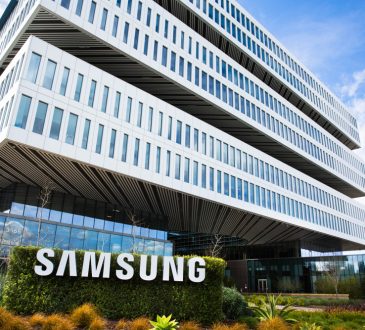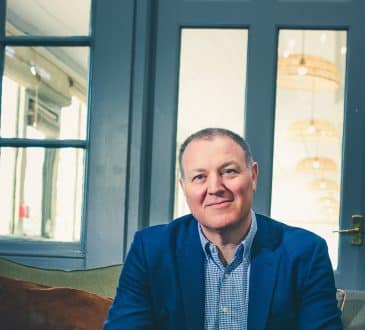Why leaders need to better harness the potential of Millennials

In the Age of AI, harnessing the possibility of Millennials could be the single smartest move a leader can make. Why? Imagine this… A leader who is hopeful for the future, optimistic about what is possible and keen to change roles and learn. A team member who loves technology, is willing to share their perspectives openly, and rather than being fearful of AI, wants to engage with it to see how it could improve their work and world. This is what Gen Y – the Millennial generation – has to offer. So what does ‘good’ look like when it comes to leading Millennials?
- Seek to Understand
However introverted you might be personally, belonging to a naturally gregarious species means that not a single one of us enjoys feeling alienated from others or ‘all alone’. Unfortunately for Millennials, they are sandwiched between Gen X and their children – Gen Z – in the workplace. Their optimistic perspectives on life from growing up in an era of economic prosperity and relative stability in world politics and conflict are in stark contrast to the gritty realism of their generational neighbours. Millennials see the world differently than Xers and Zs and hold different core beliefs and values, which can create avoidable personal drama in the workplace.Seeking to understand asks us to let go of our own views, perspectives and biases temporarily and be with others in theirs. By inviting clear, clean conversations with Millennials about differences, desires, interests and needs, we can find solutions that can be actioned together and that harness the different perspectives and skill sets of Millennials.
- Power-with rather than Power-Over
A recent survey by Deloitte found Millennials reported increasingly high levels of burnout due to work-related pressures, with 4 in 10 saying they feel anxious or stressed at work most of the time. Their longer-term financial futures, day-to-day finances, and the health/welfare of their families were top stress drivers, but workplace factors such as heavy workloads and unhealthy team cultures are also at play.In any relationship, there is a power dynamic in play—whether formally in a workplace, or informally in a family, friendship group, or between intimate life partners. In power-over dynamics, it feels that you don’t have a voice, you have no choice, or any true influence over decision-making. And because choice, sovereignty and autonomy are fundamental human needs, when they are missing we react with defensiveness.
Power-with takes the vertical power-over dynamic and puts it on its side. Rather than doing leadership to or for people, we partner with them by inviting personal ownership, encouraging collaboration and creating power for the group rather than the individual. In power-with we feel supported, seen, and known. We’re willing to take risks, try new things and stretch the boundaries, because we know there’s someone with us, even if – or if we’re realists, when – things don’t go according to plan.
Leading through partnering is better for everyone, but it’s essential to access the best of Millennials at work in the Age of AI. These were the digital pioneers who enthusiastically engaged with smart phones, search engines and the mobile revolution and they pioneered and embraced digital communication tools like text and Slack. For them, with the help of technology, anything is possible.
- Assume Positive Intent
Millennials are rethinking the role of work in their lives. The Deloitte research showed that while 62% of millennials say work is central to their identity, work/ life balance is something they are striving for and their top consideration when choosing a new employer. So much so that three-quarters of respondents who are currently working in remote or hybrid roles reported they would consider looking for a new job if their employer asked them to go on-site full-time.Leading flexible and hybrid teams asks different things of leaders; fundamentally whether they trust their people when they are ‘out of sight’ and ‘offsite’. Assuming positive intent encourages us to lead with the belief that people are inherently good, they are showing up with good intentions to achieve the outcomes needed, and are doing the best they can with what they have available in this moment—be that time, energy, attention or emotional regulation.
Assuming positive intent means that we don’t second-guess their agenda, we don’t make assumptions around their motivation, and we take the things they say at face value. We operate from a space of ‘ridiculous naiveté’ until or unless their actions show otherwise; at which time we act accordingly.
Key to this is the word ‘ridiculous’. Do we believe that every person has good intentions and no ‘hidden’ agenda? Not at all. But choosing this orientation saves us the emotional energy of trying to second-guess that agenda and reduces the potential for drama. When we assume positive intent, we invite people to step into the space we are holding for the best version of themselves. Often, that’s enough for them to do just that.
Written by Dr. Paige Williams.
Have you read?
JVP’s New York Innovation Hub Pioneers International Initiative to Advance AI in Insurtech and Climatetech.
Andrey Berezin, Founder of Euroinvest Development (Berezin Andrey Valeryevich).
4 Ways I’m Upgrading my Travel Experience.
Best Instagram Marketing Tools in 2024: Features, Prices, and Benefits.
A Balancing Act in Leveraging AI for Business Growth.
Add CEOWORLD magazine to your Google News feed.
Follow CEOWORLD magazine headlines on: Google News, LinkedIn, Twitter, and Facebook.
Copyright 2024 The CEOWORLD magazine. All rights reserved. This material (and any extract from it) must not be copied, redistributed or placed on any website, without CEOWORLD magazine' prior written consent. For media queries, please contact: info@ceoworld.biz








